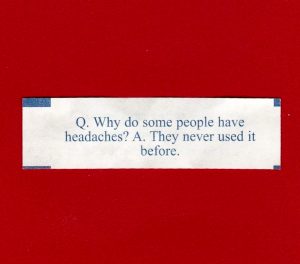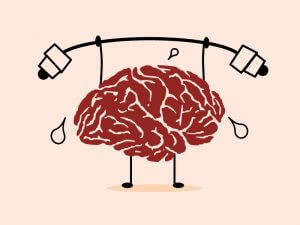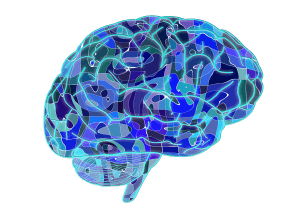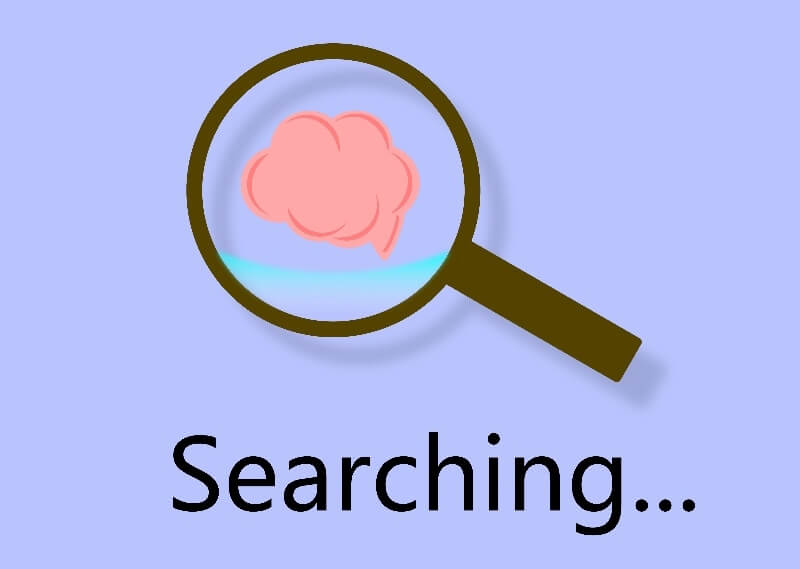Fortune Cookie Friday: Use It or Loose It

Have you ever experienced a time when you walk into a room and forget what you were about to do? You knew only a moment ago, but the memory is gone. We forget things all the time. Some call it a “senior moment,” although you don’t have to be older to have memory problems.
Our brains are an ever-changing organ. We create new memories every day. We build new neural pathways with each unique experience. In fact, cognitive development continues until to the age of 25, when the prefrontal cortex of the brain is fully developed. If you thought you were grown up at 18, think again.
Of course, there are ebbs and flows in life. Things grow, and things fade. Our brains also experience this, and we need to prepare. Brain deterioration can cause many problems like forgetfulness, loss of focus, and decreased problem-solving capacity.
“But I’m not a senior citizen,” you say. “I’m still young.”
Well, hold on to your hats, kids. The human brain doesn’t stay young forever. A certain amount of age-related brain deterioration occurs naturally and starts as early as age 30. Yep, I hope you used those five years of peak performance responsibly.
Don’t worry though. Unless there is a history of brain-related illness or trauma, the deterioration is relatively slow. We can also help our brains stay “young” by treating them right.
Eat Healthy
A proper diet helps the whole body. Scientists have found that obesity in middle age puts us at a higher risk of having decreased cognitive abilities and suffering greater deterioration later in life.1
Our brains have a high metabolism and require nutrient-rich foods to function properly. Eating foods low in saturated fat and calories and high in antioxidants can help. Consider a “Rainbow Diet”—no, you don’t get to eat Skittles every day—where a meal consists of a colorful selection of healthy foods and high fiber. It’s suggested to stay away from white foods, except eggs and yogurt.
Sleep Well
Ah, nothing’s like a good night’s sleep. We all need to have a little downtime to rebuild and rebut our engines. Our brains need this too. Whether we get 5 hours or 10 hours, sleep helps the brain process our thoughts and experiences. We should aim for 7-8 hours of restful sleep each night to help our bodies and brain process and repair the previous day’s events and damages.
 Let’s Get Physical
Let’s Get Physical
Physical exercise enhances our cognitive function, above and beyond the regular benefits like increased blood flow for oxygen and nutrients, production of “feel-good” endorphins, improved sleep, and buildings muscles.
When we work out, we produce a protein called brain-derived neurotrophic factor, or BDNF. This protein helps areas of the brain involved in learning, memory, and higher-order thinking. BDNF stimulates the creation of new neurons and helps maintain existing neurons.
Now we can build our brain along with our muscles. Get that body moving for the brain!
Moderate the Drink
Although excessive drinking of alcohol is unhealthy for the body and the brain, moderate alcohol consumption, one to two drinks a day, has shown to protect against cognitive decline with aging. Evidence has shown that red wine might be the alcohol of choice, due to its high antioxidant content.
Coffee also has a high content of antioxidants and can benefit the brain. Researchers found that caffeine enhances coffee’s beneficial ability so a decaffeinated cup won’t give us as big a boost in the morning or for our brain.
Don’t Smoke!
Nothing good comes from smoking. Introducing our body and brain to the onslaught of chemicals from smoking is never good. To put it bluntly: if you’re a smoker, quit. If you’re not a smoker, don’t start. Your brain and your body will thank you for it later.
Make Connections
Having a vast network of friends and other personal relationships can decrease the risk of age-related brain deterioration. We are social animals after all. We benefit from engaging in social and productive activities on a regular basis.
Making connections in our lives helps us make connections in our brains. General conversation can stimulate multiple areas of the brain, including memory, emotion, and problem-solving centers.
Consider phoning a friend or family member. Revel in a holiday get-together—even if Aunt Edna shows up. Grab some friends and take a class together. This brings me to another point.
Keep Learning
Just because school is over, that doesn’t mean we stop learning. If we are on summer break, consider a class to span the gap. We can keep out brains honed for when regular school resumes.
If we have been out of school for many years, take some free time to learn something new, a language, craft, or skill. We can improve our brain function and enrich our lives at the same time. Even puzzles like Sudoku, crosswords, and jigsaws can build the brain.

Scientists have yet to find a way to replace our brains if we lose them. (I’m still trying to figure out what I’ve done with mine.) We only get one, and we need to take care of it. We need to eat right, exercise, rest, learn, and stay connected. By taking care of our bodies and our brains, we can not only live longer but remember the many years of life we have lived.
References
- Dahl A, Hassing LB, et al. Being overweight in midlife is associated with lower cognitive ability and steeper cognitive decline in late life. J Gerontol A Biol Sci Med Sci. 2010 Jan;65(1):57-62.




